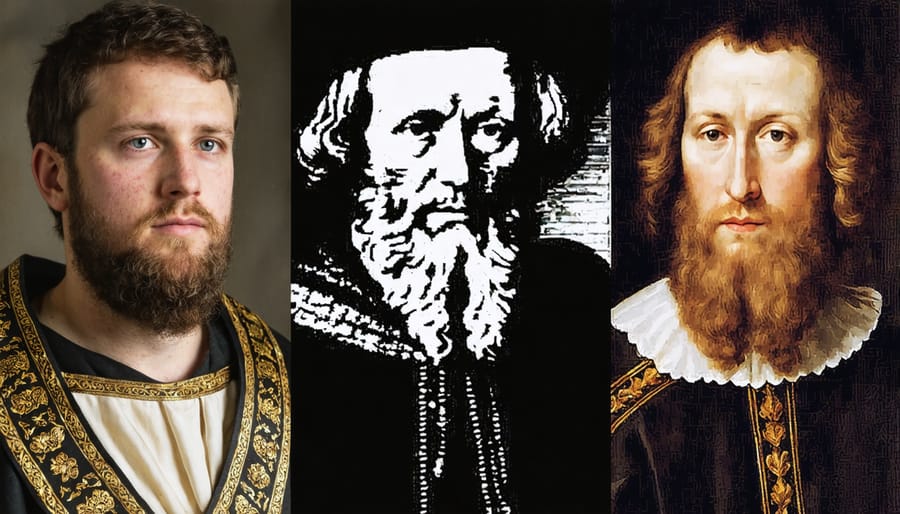Explore the complex relationship between Christianity and philosophy in this thought-provoking article. For centuries, great thinkers have grappled with questions of faith, reason, and the nature of existence. While some see an inherent conflict between religious belief and philosophical inquiry, others argue that Christianity and philosophy share common goals in the pursuit of truth, wisdom, and a deeper understanding of the human experience. Join us as we examine the historical interplay of these two vital traditions and consider how engaging with philosophy can enrich and strengthen one’s Christian faith. Discover how the Bible itself encourages critical thinking and wrestles with profound philosophical questions. Learn from brilliant Christian philosophers who have harmonized their intellectual pursuits with an abiding love for God. Whether you see philosophy as a challenge to or an essential companion in your spiritual journey, this article will inspire you to think more deeply about your beliefs and their relevance in today’s world.
What is Philosophy?
Philosophy is the love of wisdom and the pursuit of truth through rational inquiry. It involves exploring fundamental questions about existence, knowledge, values, reason, and the nature of reality. The main branches of philosophy include metaphysics (the study of being and the nature of reality), epistemology (the theory of knowledge), ethics (the study of moral principles and values), and logic (the study of valid reasoning). By engaging in philosophical inquiry, we seek to gain a deeper understanding of ourselves, the world around us, and our place within it.
Philosophy aims to challenge assumptions, examine beliefs, and arrive at well-reasoned conclusions. It encourages critical thinking, logical argumentation, and the careful analysis of ideas. Through philosophical reflection, we can better understand the foundations of our beliefs, explore different perspectives, and develop a more coherent worldview. While philosophy may not always provide definitive answers, it equips us with the tools to navigate life’s big questions and make sense of our experiences. Ultimately, the purpose of philosophical inquiry is to pursue truth, wisdom, and a greater understanding of the human condition.
Faith and Reason
Biblical Examples
The Bible contains numerous examples of reason and logic being used to understand God and truth. In Isaiah 1:18, God invites us to reason with Him, saying, “Come now, and let us reason together.” The Apostle Paul, known for his philosophical arguments, often employed logical reasoning in his letters. In Acts 17:2-3, Paul “reasoned with them from the Scriptures, explaining and demonstrating that the Christ had to suffer and rise again from the dead.” Jesus Himself used logic and reasoning to challenge the religious leaders of His time, as seen in Matthew 22:41-46, where He posed a thought-provoking question about the Messiah’s identity. Throughout the Bible, wisdom and understanding are highly valued, as evidenced in Proverbs 4:7, which states, “Wisdom is the principal thing; therefore get wisdom. And in all your getting, get understanding.” These Biblical Examples demonstrate that Christianity embraces the use of reason and logic in the pursuit of knowing God and discerning truth.
Notable Christian Philosophers
Throughout history, numerous Christian philosophers have demonstrated the compatibility of faith and philosophical pursuit. One notable figure is St. Augustine of Hippo, who drew upon Platonic ideas to develop his influential theology. In the Middle Ages, St. Thomas Aquinas synthesized Aristotelian philosophy with Christian doctrine, creating a comprehensive philosophical framework that remains influential today. Blaise Pascal, a 17th-century mathematician and philosopher, explored the rational basis for belief in God through his famous “Pascal’s Wager.” In the 20th century, C.S. Lewis, known for his apologetic works such as “Mere Christianity,” used philosophical arguments to defend the reasonableness of faith. Other Christian thinkers, like Søren Kierkegaard and Alvin Plantinga, have made significant contributions to existentialism and the philosophy of religion, respectively. These philosophers demonstrate that a deep Christian faith can coexist with rigorous philosophical inquiry, enriching our understanding of both domains.


Shared Goals and Methods
Christianity and philosophy share a profound desire to seek wisdom, understand reality, and live an examined life. Both disciplines encourage individuals to ask deep questions about existence, morality, and the nature of truth. Christians, guided by faith, turn to the Bible as the ultimate source of wisdom, while philosophers rely on reason and logical arguments to explore these fundamental questions.
At their core, Christianity and philosophy aim to help people navigate the complexities of life and find meaning in their experiences. They offer frameworks for understanding the world and our place within it. Christians believe that God’s revelation through scripture and the life of Jesus Christ provides the foundation for a fulfilling and purposeful existence. Similarly, philosophers engage in critical thinking and analysis to uncover the underlying principles that shape our understanding of reality.
Both Christianity and philosophy emphasize the importance of living an examined life—one characterized by self-reflection, moral integrity, and the pursuit of truth. Christians are called to live according to God’s will, reflecting His love and compassion in their actions. Philosophers, too, recognize the value of aligning one’s beliefs with their behavior and making well-reasoned choices. By engaging in honest introspection and striving to live authentically, Christians and philosophers alike can cultivate wisdom and lead more meaningful lives.
Philosophical Tools for Spiritual Growth
Philosophy can provide powerful tools for Christians seeking spiritual growth and a deeper understanding of their faith. By engaging with philosophical concepts, believers can gain new insights into the nature of God, the human condition, and our relationship with the divine. For example, studying the works of Christian philosophers like Saint Augustine or Thomas Aquinas can help us grapple with profound questions about free will, morality, and the existence of evil in a world created by a loving God.
Moreover, philosophy encourages critical thinking and logical reasoning skills that are invaluable for interpreting scripture and applying biblical principles to our daily lives. By learning to analyze arguments, question assumptions, and seek truth through rational inquiry, we can develop a more robust and resilient faith that withstands the challenges of doubt and skepticism.
Ultimately, philosophy and Christianity share a common goal: the pursuit of wisdom and understanding in the service of a meaningful and fulfilling life. By embracing the tools of philosophical reflection, Christians can enrich their spiritual journey, deepen their relationship with God, and more effectively live out their faith in the world.
Conclusion
In conclusion, while Christianity and philosophy may seem like distinct disciplines, they can work together in the pursuit of truth and a meaningful life. Christianity provides a foundation of faith, offering answers to life’s biggest questions through God’s revelation in the Bible. Philosophy, on the other hand, encourages critical thinking, logical reasoning, and the exploration of complex ideas. By engaging with both, Christians can deepen their understanding of their beliefs, strengthen their faith, and learn to articulate their convictions more effectively.
As we navigate life’s challenges and seek to grow in our relationship with God, embracing both faith and reason can lead to a more robust and vibrant spiritual journey. By studying philosophy and applying its principles to our faith, we can cultivate wisdom, discernment, and a greater appreciation for the beauty and complexity of God’s creation. Ultimately, when approached with humility and discernment, philosophy can be a valuable tool in our quest to know God and live out our faith in a way that honors Him. For further exploration of how philosophy can complement spiritual beliefs, consider the insights in Reconciling Faith and Reason: A Biblical Perspective.
